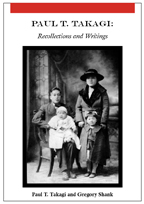Description
Deploying Weapons of the Weak in Civil Society: Political Culture in Hong Kong and Taiwan
This article explores the cultural legacies of late 20th century efforts to institutionalize democracy in Hong Kong and Taiwan. The authors ask, how do histories of colonialism and resistance, if at all, shape the political cultural repertoire of a society after institutional markers of democracy are more or less in place? This question is a point of entrée into exploring how civil political discourse manifests in places deeply divided by historical and present power differentials. To develop theoretical tools for such inquiries, the authors take up W. E. B. DuBois’ ideas about double consciousness and veils, as well as James Scott’s description of “weapons of the weak,” and elaborate on their relevance in the context of civil society. Rich, multivalent expressions of civil political discourse in the form of political cartoons are used as data.
Hong Kong, Taiwan, civil society, political discourse, democratization, political cartoons, colonialism
Citation: Social Justice Vol. 33, No. 2 (2006): 77-104

